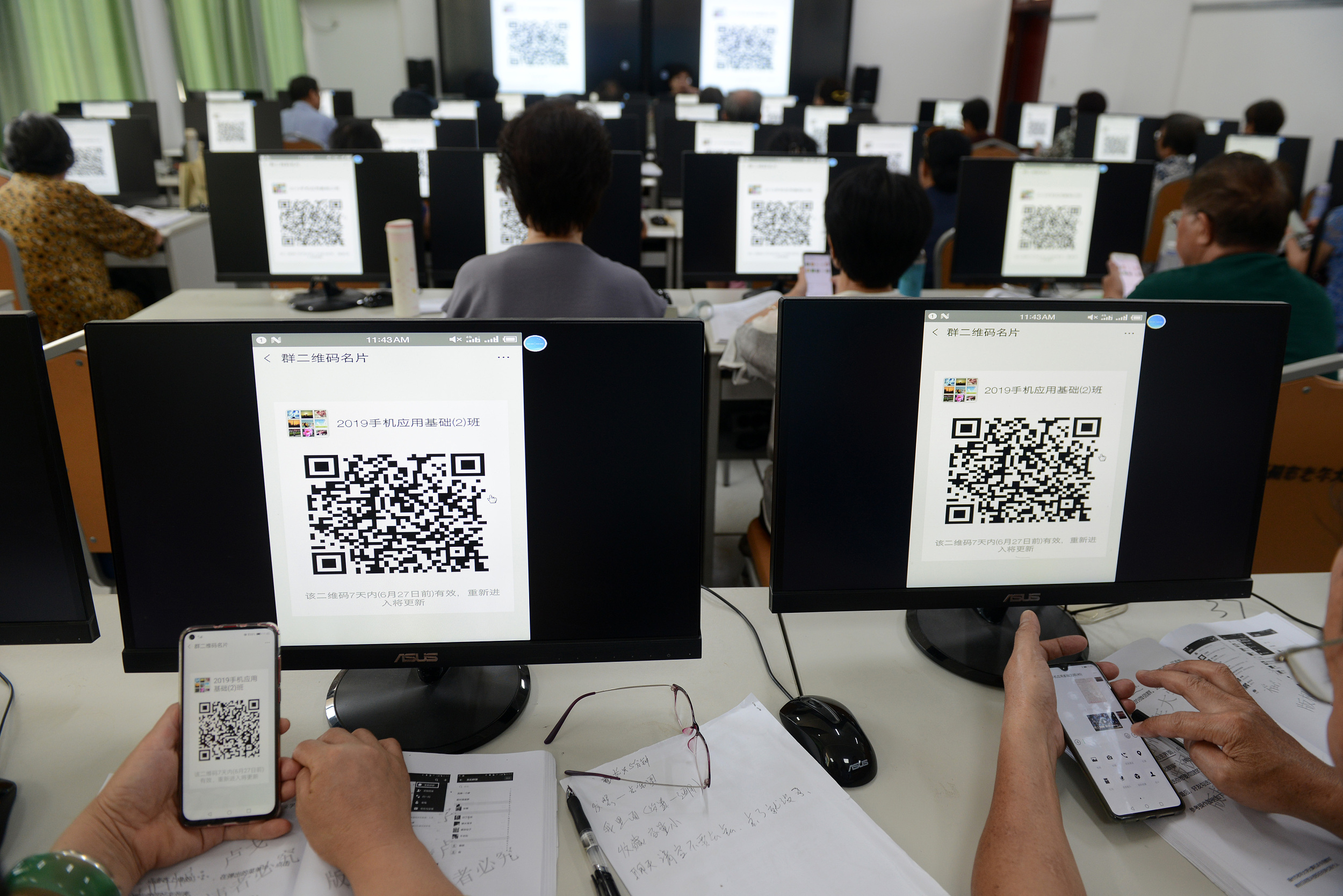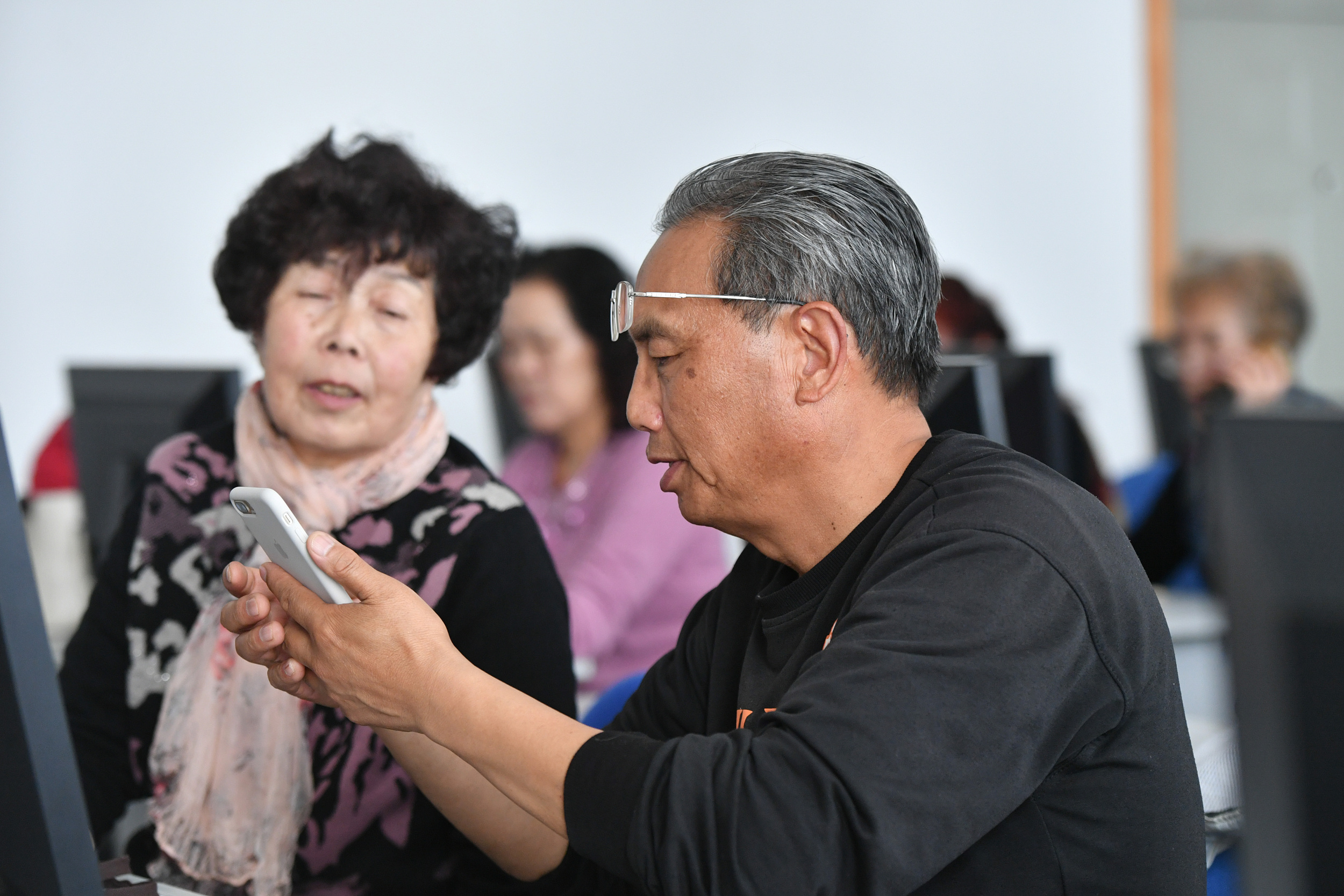04:37

Digital services have increased in the wake of the novel coronavirus pandemic, from online payments and food delivery to car-hailing services. But it's also put a spotlight on the digital divide. Swiping, typing and scanning QR codes on a smartphone may seem like a daunting task for some seniors. So, communities in China are setting up classes to help the elderly learn how to use mobile phone services.

On the older side of the digital divide, the seniors are having problems enjoying online services.
"I rarely use a mobile phone because I can't learn. There is no internet in my house," said one elderly Beijing resident.
"It seems people nowadays can't get by without a mobile phone. You need one for either car-hailing services or online payments. But we don't know how to use them," said another.
"The most difficult thing for me is to use a mobile phone to book train tickets. I also don't know how to use a mobile phone when purchasing things at the supermarket," a third elderly Beijing resident said.
In Beijing, some non-governmental organizations have launched community training sessions to teach the elderly how to use mobile phones.
Guo Yongcai and his wife are both over 80 years old.
In the past, they never used mobile phones to call a car or make purchases. But with the coronavirus outbreak, it became necessary to learn how to use these and other digital services, as shops encouraged mobile payments to avoid spreading the virus, and many supermarkets turned to online deliveries at the height of China's outbreak.
People across the country now also need to show a "health code" on their phones to enter a mall, supermarket or other public space. The "health code" is a digital pass generated by a smartphone app based on the user's recent travel history and other data.
Guo and his wife had to seek help from community volunteers to catch up with the digital trends.

"I can't hear or see clearly. I can't learn. They taught me well, but I can't remember. My husband is also totally confused. But he learned better than me. Then I learn from him," Guo's wife said.
Although the elderly can learn basic internet skills from community classes, many of them say it's hard to completely master these skills in just one or two lessons.
Some of them don't want to seek help from family members, either.
"My son taught me with one or two words, and then he left home. Young people feel bothered when you can't seem to master or remember something. I taught my child to walk and eat step by step decades ago. When it's my turn, he felt bored," said Guo.
China currently has about 250 million people over 60 years old, nearly 18 percent of the country's population.
According to the data, internet users aged 60 or older make up only 6.7 percent of the country's overall users.
In a bid to lessen the digital divide, the Ministry of Civil Affairs says the government will roll out measures to help solve problems related to technology that seniors might encounter in their daily lives.
Data shows rapid growth in number of senior internet users
New data shows an increase in the number of elderly internet users in China.
Data from QuestMobile shows over 100 million netizens in China are over 50. This group has been growing faster than other age groups, and the female users far outweigh the males.
Media outlet The Paper also released a report with Chinese mobile app Qutoutiao on citizens over 60. It shows internet users over 60 spend more than 15 more minutes online every day, compared to those aged 40 to 60 years old.
Their main activities include getting information, reading, watching short videos and playing games.
Meanwhile, People Think Thank surveyed 6,000 respondents over the age of 60 and found that less than 1 percent say they did not have a mobile health code, while more than 96 percent say they have used the health code when visiting public places.